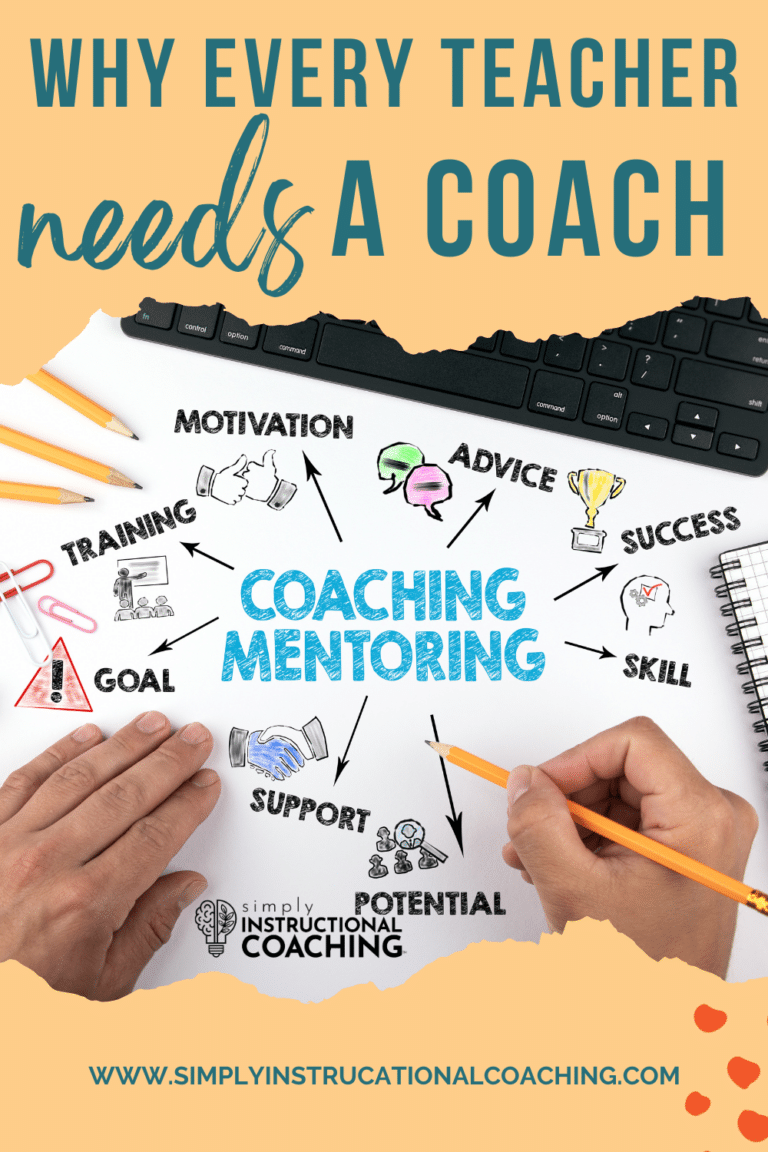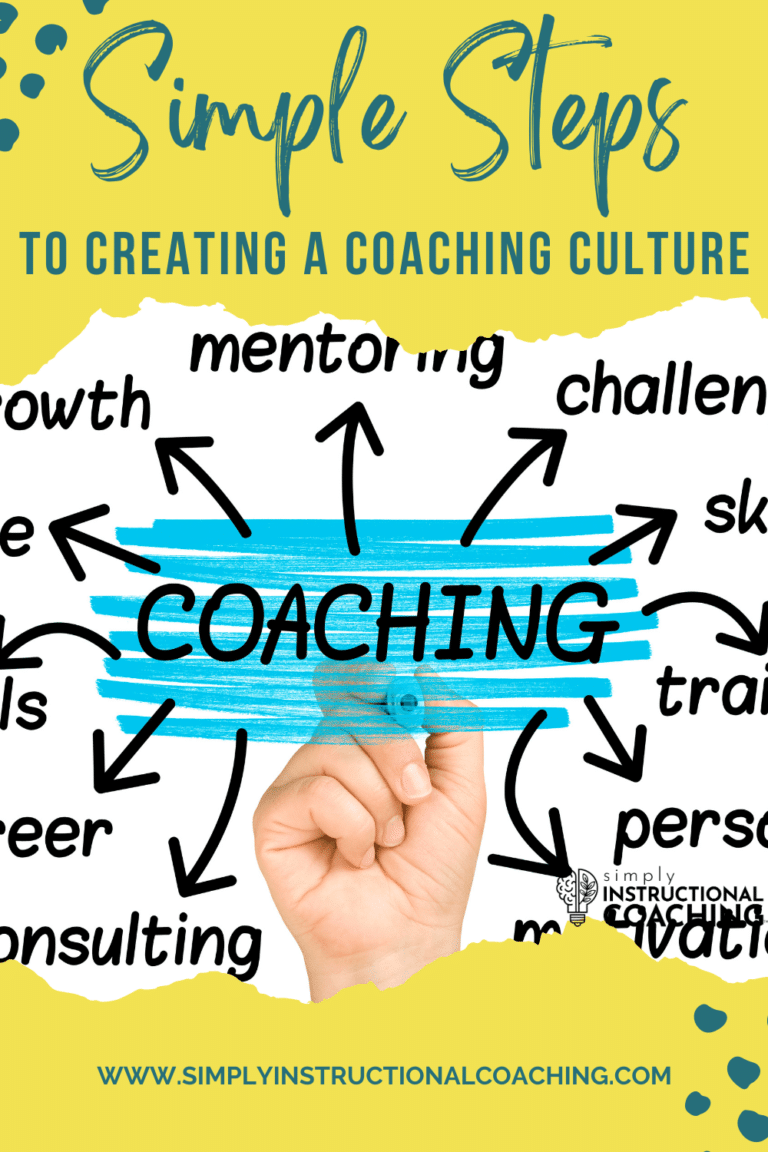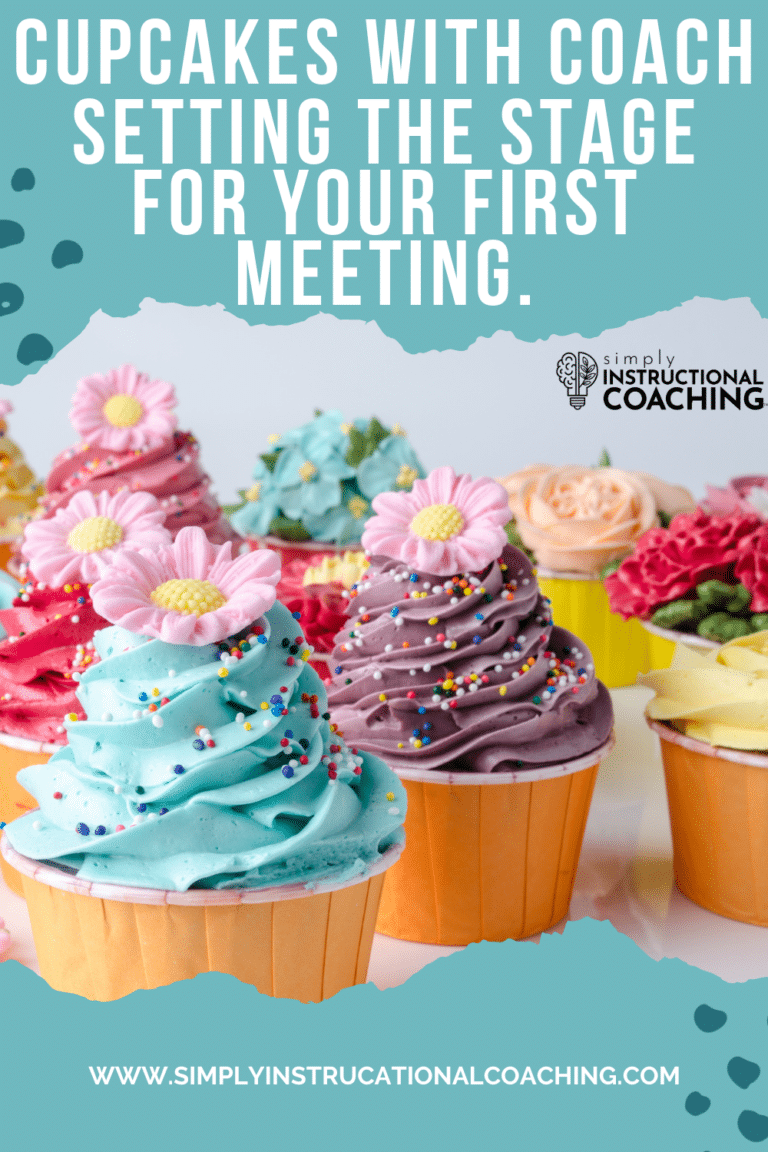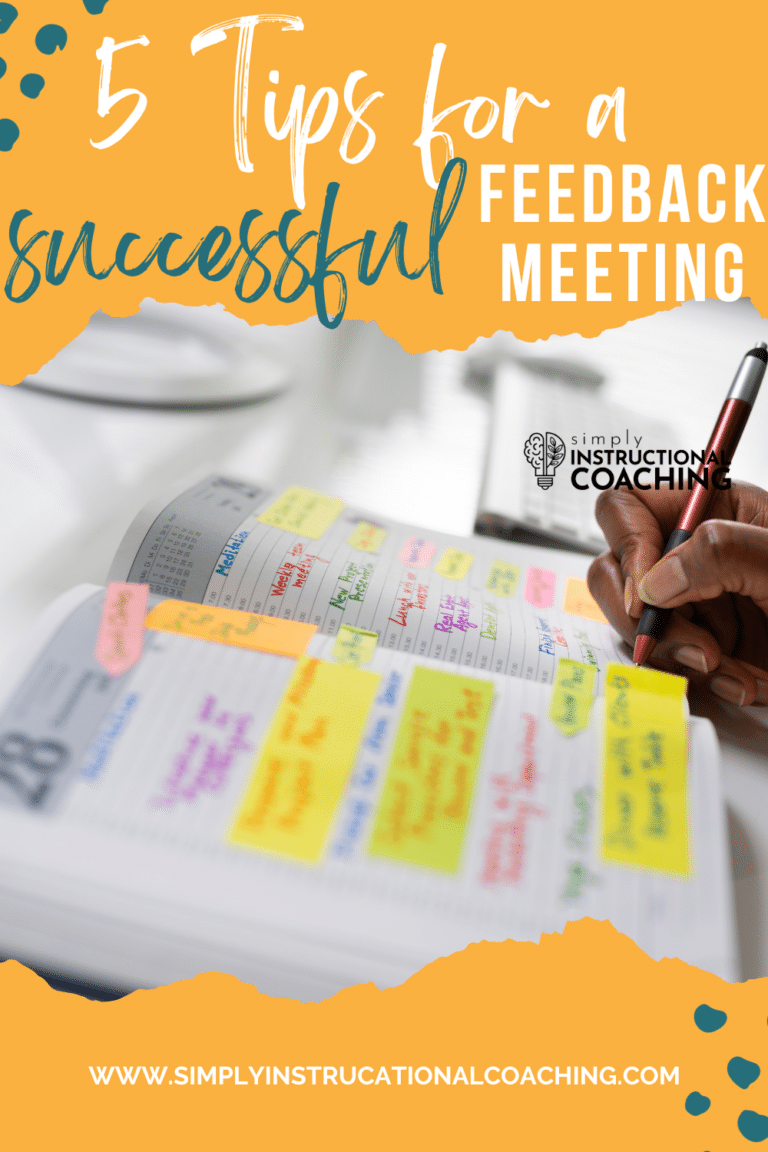Become a Better Listener as an Instructional Coach
By Nicole S. Turner
Share This Post:
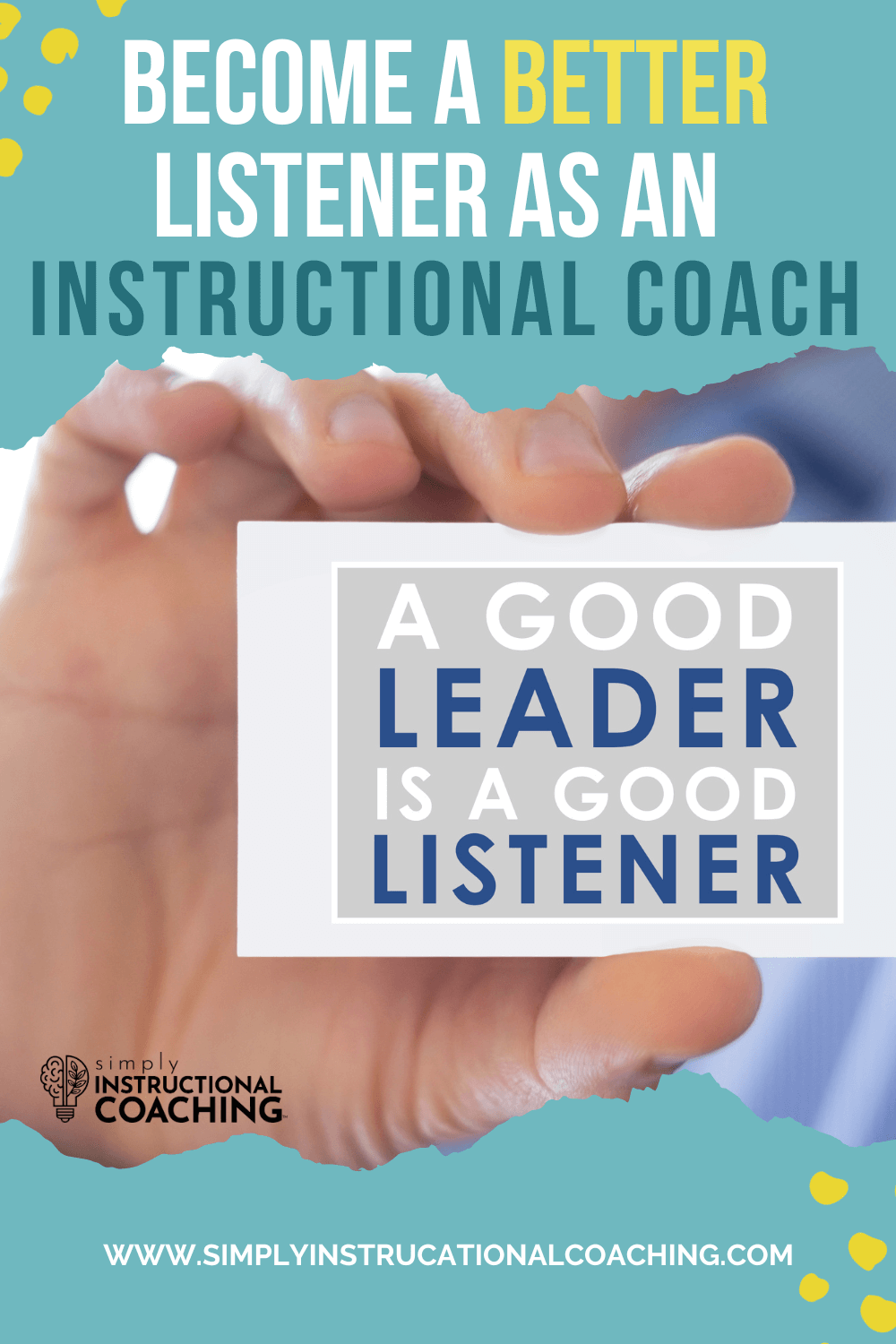
Why is it important to be a better listener?
A few weeks ago we talked about how trusting your teachers is key to the coaching relationship. On the flip side, your teachers need to trust you back. One of the most powerful ways to build that trust is through active listening.
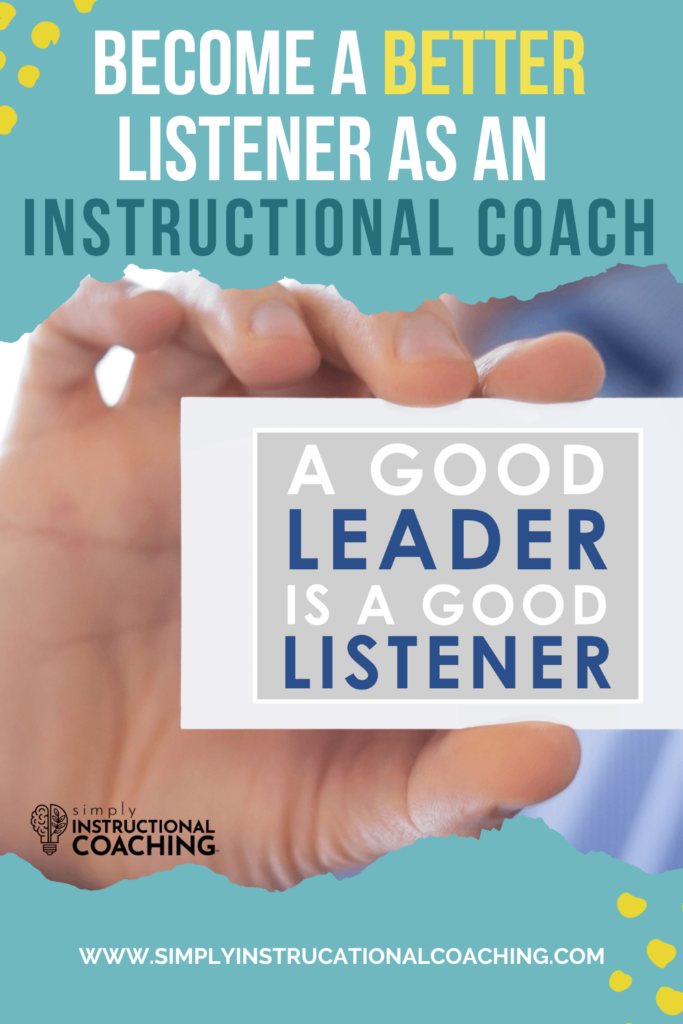
Being a good listener shows that we respect our teachers. When we give them equal talk time in a conversation, they know that we value their perspective.
Listening can also help us to get more information that could be useful in our coaching cycles. When we sit back and just let the teacher talk, the more patterns we will hear and the more we will learn. Equipped with this knowledge, we are better prepared to be supportive. Sometimes they might even share something juicy.
So How Do You Become a Better Listener?
Hold your Tongue
Be mindful of how much space you take up in the conversation. Make sure that the teacher has just as much talk time as you do.
One trick that I’ve noticed is that if I simply hold my tongue and pause before responding, the teacher will often jump in to fill the empty air and say even more.
Another trick is to simply ask, “could you say more about that?”
Ask Open-Ended Question
Compare this question:
“Do you think the students took too long to transition from the lesson to small group activities?”
To this one:
“How do you think the current routines and structures are affecting the efficiency of small group time?”
The second question would certainly require a longer and more thoughtful response! The first question might make the teacher feel attacked like something is wrong with her class.
The second question gives the teacher more time to talk, process, and reflect. It also invites a collaborative conversation centered around growth.
Assume that Teachers Don’t Need Advice
When you walk into a coaching conversation, go in with the mindset that you are there to process something with the teacher, not for her. Your goal should not be to provide the answer but to help the teacher sort through the facts and arrive at a solution together.
If you go in with this mindset you’ll be more likely to ask questions, to wonder, and to be creative. The teacher will feel comfortable sharing her own ideas.
Become Aware of Your Thoughts
Pay attention to where your mind goes when you are trying to listen. Do you start to think about past experiences with this teacher? Are you thinking about how you really want this meeting to be over so you can eat lunch before your next one?
Take a cue from meditation and become aware of how your mind wanders. This is the first step in redirecting it. Step back into the moment and practice mindfulness. Acknowledge what you had thought but then put your energy back into what the teacher is saying right now.
Listen for Patterns
When teachers have the opportunity to talk for longer periods of time, a more complete picture of their patterns of thinking comes into view. These patterns help us read between the lines and understand things that the teacher might not explicitly be saying.
Follow the Flow
There are many times that I go into a coaching conversation thinking that I know how it will end. I have an idea that I want the teacher to try and I want to steer the conversation towards that idea.
However, when we try to control where the conversation goes we lose the opportunity for true collaboration and creative thought. Let the conversation drive itself. Trust the process and arrive at a solution together, organically.
Listen for the sake of listening
I really like to do this exercise every once in a while with my teachers. Provide a prompt, something like “Describe your journey to becoming an educator.” Give the teachers a moment to think and plan what to say, and then just listen.
Make a rule that you are not allowed to speak, ask questions, or respond. You are just going to listen.
Being a good listener is challenging! We naturally want to validate the speaker. We feel like we have to ask follow-up questions or say something that shows we can relate. However, when we simply listen, without the intention of responding, we can focus all of our mental capacity on what is being said.
“When you talk, you are only repeating what you already know. But if you listen, you may learn something new.”
Dalai Lama


